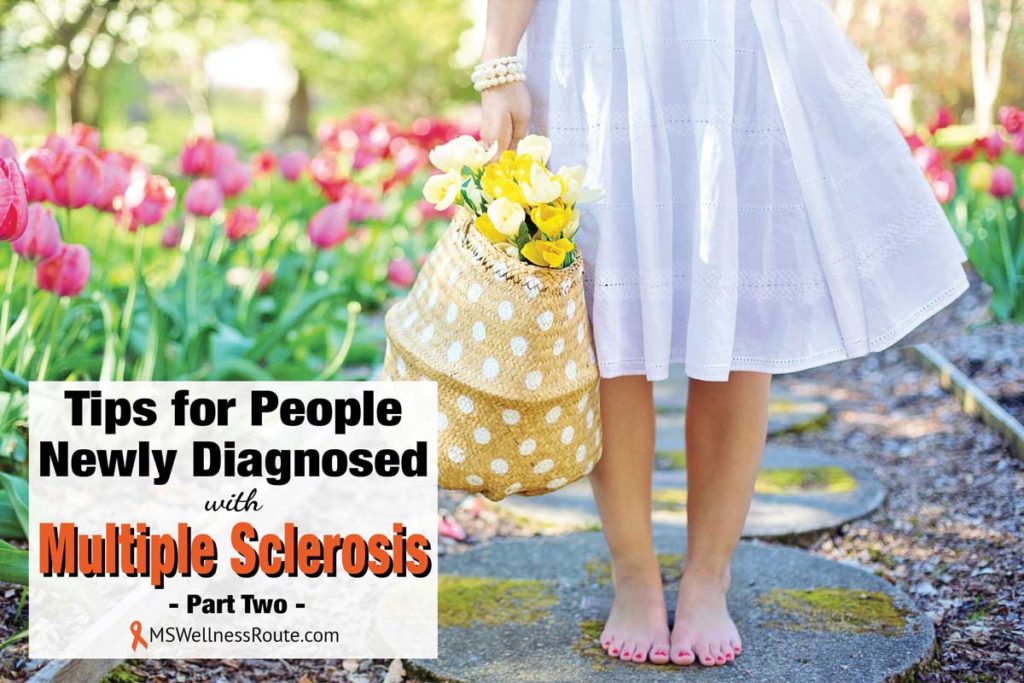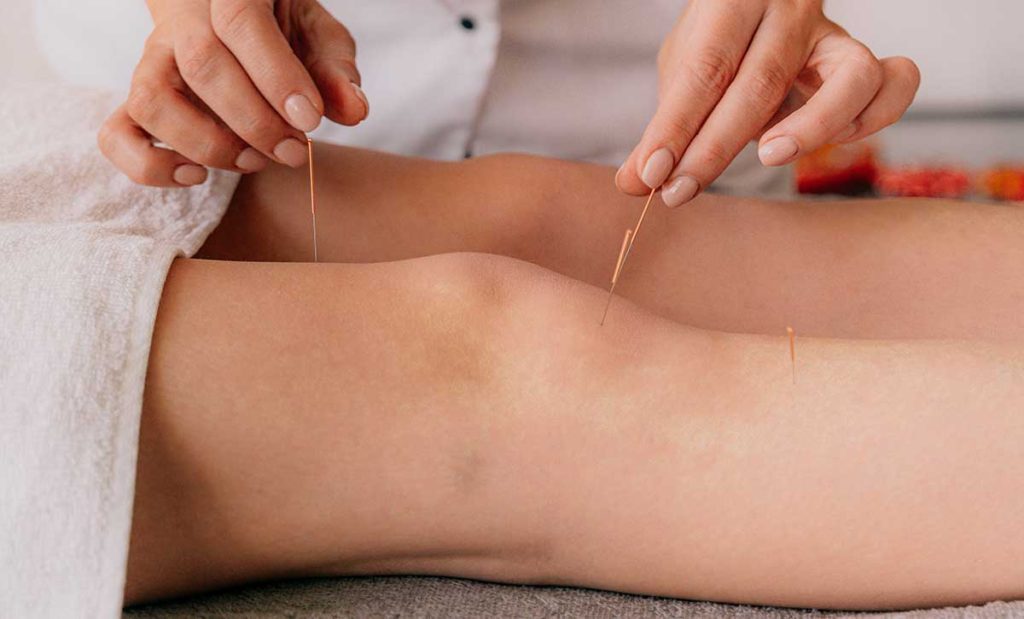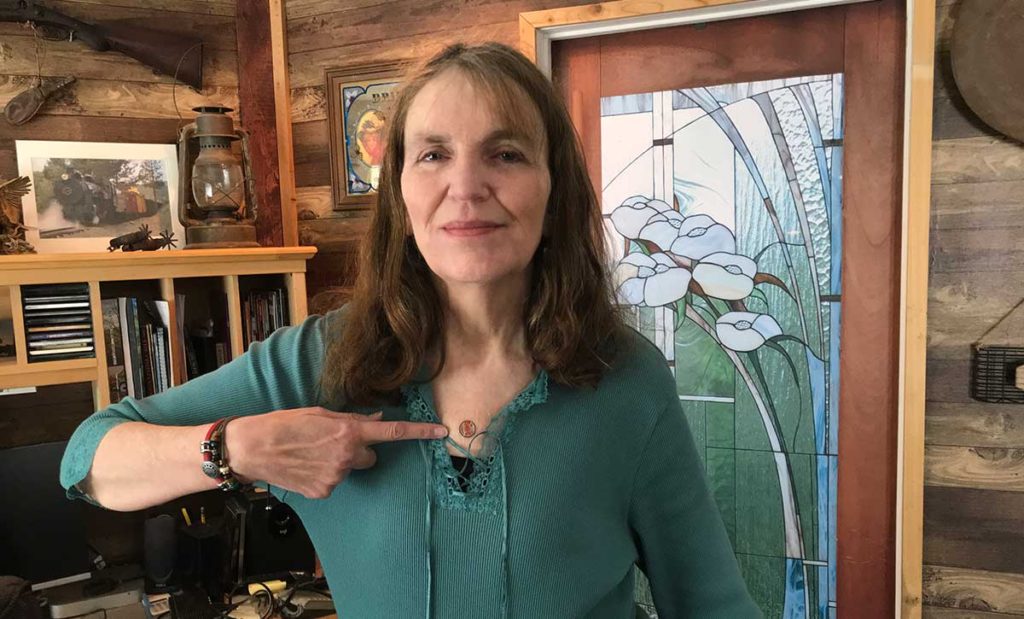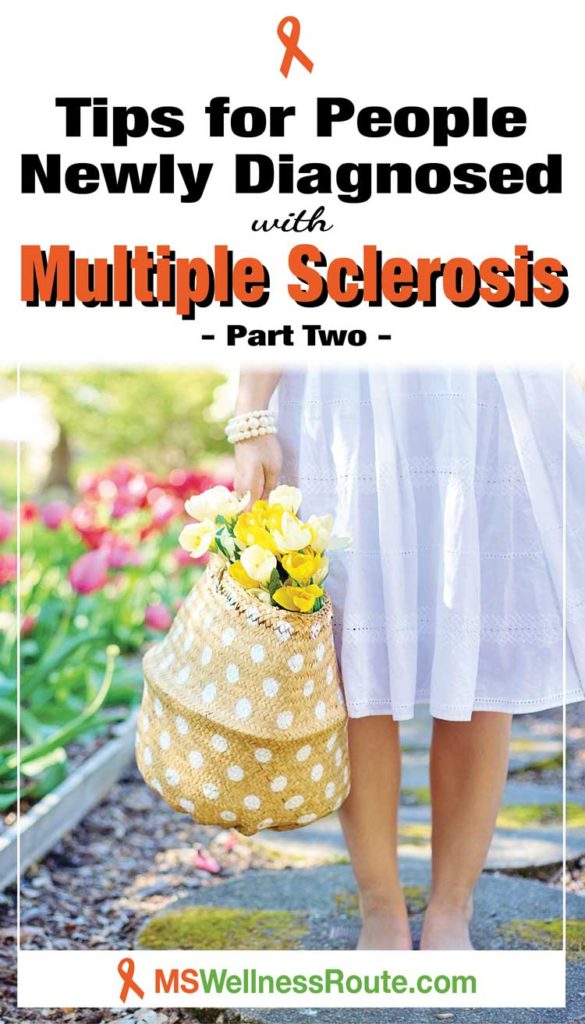Last Updated on November 17, 2023 by Cathy
This is a continuation from last week to help people newly diagnosed with multiple sclerosis (MS). Even if you’ve been living with MS for a long time there are many tips that can help you. If you missed part one you can find it here: Tips For People Newly Diagnosed With MS.

MS is a chronic inflammatory disease that attacks the central nervous system. Researchers recently released a 20-year study confirming Epstein-Barr virus (EBV) is the main cause of MS. However since the majority of all adults have EBV and only a small percentage have MS something else is involved.
You can learn more about the Epstein-Barr Virus here:
Epstein-Barr Virus Is The Leading Cause Of MS
Epstein-Barr Virus Triggers MS
Researchers believe it includes a genetic predisposition along with environmental factors. Genetics plays a small role, it is environmental factors that trigger MS. Something you did or were unknowingly exposed to caused your MS.
This is not a blaming game. Instead, knowing it is caused by an environmental factor allows you to correct what went wrong.
There is a free Symptom Questionnaire to Track Your Progress at the bottom of this post.
Get Tested
Since MS is caused by chronic inflammation it is a good idea to get a blood test to get a baseline of your inflammation. This isn’t something you need to do, it’s only a suggestion. But, it’s a good way to make sure your inflammation is going down. It’s not always about food. Life happens, things like illnesses, stress, or a flare will increase your inflammation.
A C-reactive protein (CRP) test checks levels of inflammation. The higher the number the more inflammation you have. The American Heart Association considers 2 mg/L and above to be a risk factor for heart attacks.
For people with an autoimmune disease, it is recommended to have a level lower than 0.80 mg/L. Some doctors even recommend 0.50 mg/L or lower. Ask your doctor to get tested or use an online lab.
Here’s an image of my first CRP test, as you can see it was at 1.7 mg/L:

Got milk?
Stop consuming dairy immediately. A study came out in 2022 that shows casein (a milk protein) attacks myelin in people with MS. An earlier study found that women with MS who drank more milk had more flares. Countries that consume more milk have higher rates of MS.
Get the picture? Milk is not good for the MS body.
That includes all dairy products which include ghee and whey.
Also, stop eating gluten. Studies found a gluten-free diet to be beneficial for people with MS. People with an autoimmune disease are more sensitive to gluten which can trigger a flare. Gluten also leads to gut dysbiosis. Researchers found that people with MS have more bad bacteria in their gut than healthy people.
Be Careful When Removing Foods
Be careful as you remove foods from your diet. You don’t want to become nutrient-deficient in certain vitamins and minerals. An easy way to track your nutrients is by using the free app called Cronometer. It not only tracks your calories but also your nutrients. As I was using it I discovered I kept being low in vitamin E so I added more foods to bring the level up.
Dairy is another good example. To avoid dairy you need to eat more vegetables that contain calcium such as broccoli. You also need to make sure you’re eating enough magnesium such as greens, nuts, and seeds.
Calcium and magnesium work together. The ratio between the two needs to be 1:1. People with MS are often deficient in magnesium. This can cause muscle spasms, pins and needles sensation, and tightness (spasticity).
Get Some Sunshine

People with MS usually have a vitamin D deficiency. Researchers have known this for decades. All neurologist should check their patients for vitamin D deficiency. Since they don’t, get your vitamin D level checked. Ask your doctor or go through an online lab.
Get the actual number not a “normal” result. It should be between 60-80 ng/mL, don’t go higher without a doctor’s supervision. High levels of vitamin D increase calcium which can cause health issues.
Here’s more information on vitamin D: Multiple Sclerosis And Vitamin D
Stress
Stress also increases your inflammation. When you live with MS that alone creates stress. Stress is often the last trigger of the onset of MS, it also causes flares and setbacks. It’s extremely important to lower your stress levels. It was years of chronic stress that caused my walking to get worse.
Tips to lower your stress:
- Add a bird feeder outside your window
- Avoid negative people
- Clean and organize your home
- Create a picture book of your happy moments and look at it often
- Cuddle with your cat or dog
- Enjoy nature
- Exercise because it reduces inflammation and makes you feel good
- Fill your house with flowers
- Gaze at the stars
- Get up early and listen to the birds signing
- Go for a walk
- Have a massage
- Hire someone to help around the house to clean or fix things
- Hug your kids, spouse, parents, etc.
- Listen to claiming music
- Meditate
- Move to a better location
- Pay off debt
- Pick up a fun hobby, it doesn’t have to be hard or expensive
- Quit your stressful job
- Read a good book
- Relax
- Sit in the grass barefoot and remember when you were a kid with no worries (weather permitting)
- Soak in a warm bath
- Start a garden
- Spend time doing something you love
- Take a nap
- Take several deep breaths throughout the day
- Use essential oils to add scents to your home that remind you of things you love
- Watch a funny movie
- Watch the clouds floating by

Drug Modifying Therapies
Before starting a drug modifying therapy (DMT) do your research first. Neurologists aren’t always looking out for your best interest. I discovered my neurologist was getting paid for pushing a certain DMT.
Here is a quote from The United States National Library of Medicine:
“Conventional therapies for MS are based on the use of anti-inflammatory and immunomodulatory drugs, but these treatments are not able to stop the destruction of nerve tissue.”
Did you catch that?
“These treatments are not able to stop the destruction of nerve tissue.”
Using food as medicine works without the nasty side effects. Plus, it protects you from other chronic diseases.
However, I am not telling you to not take any of the DMTs. This is a personal choice, not mine, not your doctor’s, not your best friends, only yours.
Here is a quote from the book “Healing Multiple Sclerosis” by Ann Boroch:
“One suggestion to help you decide whether to use medication is to ask yourself this question, “Will I have more fear about what is going to happen to my body if I don’t take a drug?” If the answer is yes, it is probably best to take the medication because the stress caused by your fear will contribute to the crumbling of your health. If you are more afraid to be on medication, you have answered your own question.”
I highly recommend finding a functional medicine provider. Functional medicine gets to the root cause to restore your health. You can find a practitioner here: ifm.org.
Stopping the progression of MS is your top priority. Reversing your symptoms is next. Don’t let people tell you this can’t happen because it can. Many people with MS have reversed their MS through natural healing.
People who reversed their MS such as:
- Ann Boroch, author of Healing Multiple Sclerosis
- Dr. Terry Wahls, author of The Wahls Protocol
- Matt Embry, MS advocate and film producer, see his movie Living Proof on Amazon
- Palmer Kippola, author of Beat Autoimmune
Should you hide your diagnosis of MS?

When someone is newly diagnosed with MS they sometimes hide it from others. This is what I did due to the fear of being laid off from my job. I witnessed many women suddenly having their “jobs eliminated” after a diagnosis of breast cancer.
Besides my family and close friends, people didn’t know I had MS. It wasn’t until years later that I told people only because I couldn’t hide it anymore. Telling everyone you have MS is a personal choice. Today, there are more protective rights than there were when I was first diagnosed.
The Americans with Disabilities Act (ADA) is a civil rights law that prohibits discrimination against individuals with disabilities. If you find yourself in a situation that is discriminating against you visit their website at the Americans With Disabilities National Network.
Plus, there are many well-known people who are open about their MS which brings more awareness. People such as:
- Ann Romney, wife of politician Mitt Romney
- Art Alexaki, music rocker
- Christina Applegate, actress
- Clay Walker, country music star
- Jack Osbourne, son of heavy metal musician Ozzy Osbourne
- Jamie-Lynn Sigler, actress
- Selma Blair, actress
Alternative Treatments for MS

Whether you are newly diagnosed with MS or you’ve been living with MS for a while there are many alternative treatments to choose from.
Alternative treatments consist of different methods of treatment other than standard medical care. A 2013 study found that up to 70% of people with MS have tried one or more alternative treatments. Some people use it in combination with conventional medicine, then it’s referred to as “complementary” treatment.
There are a number of alternative treatments for MS including:
- Acupuncture
- Aromatherapy is the use of essential oils to improve overall health, pain management, sleep, relaxation, and mobility
- Chelation therapy is a detox method to remove toxic heavy metals such as mercury
- Chiropractic
- Cooling vests, the MSAA has a “Cooling Distribution Program” to help individuals diagnosed with MS with heat intolerance
- Diet
- Exercise such as Tai Chi, and yoga
- Fasting or intermittent fasting
- Massage
- Meditation
- Mindfulness
- Reflexology is done by applying pressure with the thumb on specific points of the body to relieve MS symptoms
- Spirituality well-being
- Supplements
Keeping reading for a free Symptom Questionnaire to Track Your Progress
Alternative Treatments I Use
I started using food as my medicine in 2004 and stopped all medications in 2005. I’m not saying that’s what you should do, everyone is different so do what works for you. I’m only sharing what I do.
Today, I use many different alternative methods such as:
- Aromatherapy, my favorite essential oils come from Plant Therapy
- Diet, I eat a paleo-based diet that fits my needs
- Exercise, my favorite is an online gym for MS called OptimalBody Personal Fitness
- Mindfulness to reduce stress
- Online lab for blood work, I use Walk-In Lab
- Positive thinking – it works!
- Supplements, the supplements I love to use are from Biotics Research and Thorne
- Taopatch
If you haven’t heard of Taopatch it’s a small patch you wear on your body. It’s a nanotechnology device that combines acupuncture with light therapy. I was very reluctant to purchase it because I’ve had MS for such a long time and wasn’t sure it would work.
However, after 10 minutes of wearing the patches for the first time, I was able to lift my legs twice as high. I was so amazed that it brought tears to my eyes. The patches help improve balance and mobility and reduce pain and spasticity. You can see me wearing one of my Taopatch’s in the picture below.

It is expensive but the patches last for 2-2.5 years. Because I didn’t think they would work, I bought two “start” boxes that have 3 patches each (a total of 6 patches). Now I wish I had bought the “Pro” pack because it emits a wider range of wavelengths that get absorbed into the body quicker and reach deeper levels of the body. – I think I might just do that!
It not only works for people newly diagnosed with MS but it works for people who have had MS for decades like me. If you visit their website, make sure you visit the “Multiple Sclerosis” page.
Newly Diagnosed With MS
There are a lot of questions when you are newly diagnosed with MS. The important thing to remember, MS is not a fatal disease. But, you need to take action today to improve your quality of life. You never know what tomorrow will bring and you don’t want to end up in a wheelchair or worse, bedridden.
Is there a cure for MS? If you look up the word “cure” in the dictionary it says: “Relieve (a person or animal) of the symptoms of a disease or condition.”
Then yes, you can cure MS.
Does it mean MS will be gone forever? No, once you have MS you will always have MS, you are only putting it into remission. Eating and living healthy is a lifestyle you do for the rest of your life. If not, MS will come back with a vengeance and you don’t want that!
Being newly diagnosed with MS is scary and it’s normal to go through the different stages of grief. A diagnosis of MS is life-changing. I’ve been living with MS for decades and I’m still walking. But by living a healthy lifestyle you can have a better quality of life despite having MS.
You can read part one here: Tips For People Newly Diagnosed With MS.

Symptom Questionnaire to Track Your Progress
Subscribe for free and I’ll send you the password to my secret library filled with many printables including the Symptom Questionnaire to Track Your Progress
Want to remember this health tip? Pin it to your Pinterest board!

Photo by Jill Wellington, Daria Shevtsova, ANTONI SHKRABA, and Garon Piceli from Pexels.
Resources:
https://www.ncbi.nlm.nih.gov/pmc/articles/PMC4142451/
Tips For People Newly Diagnosed With MS Part 2





